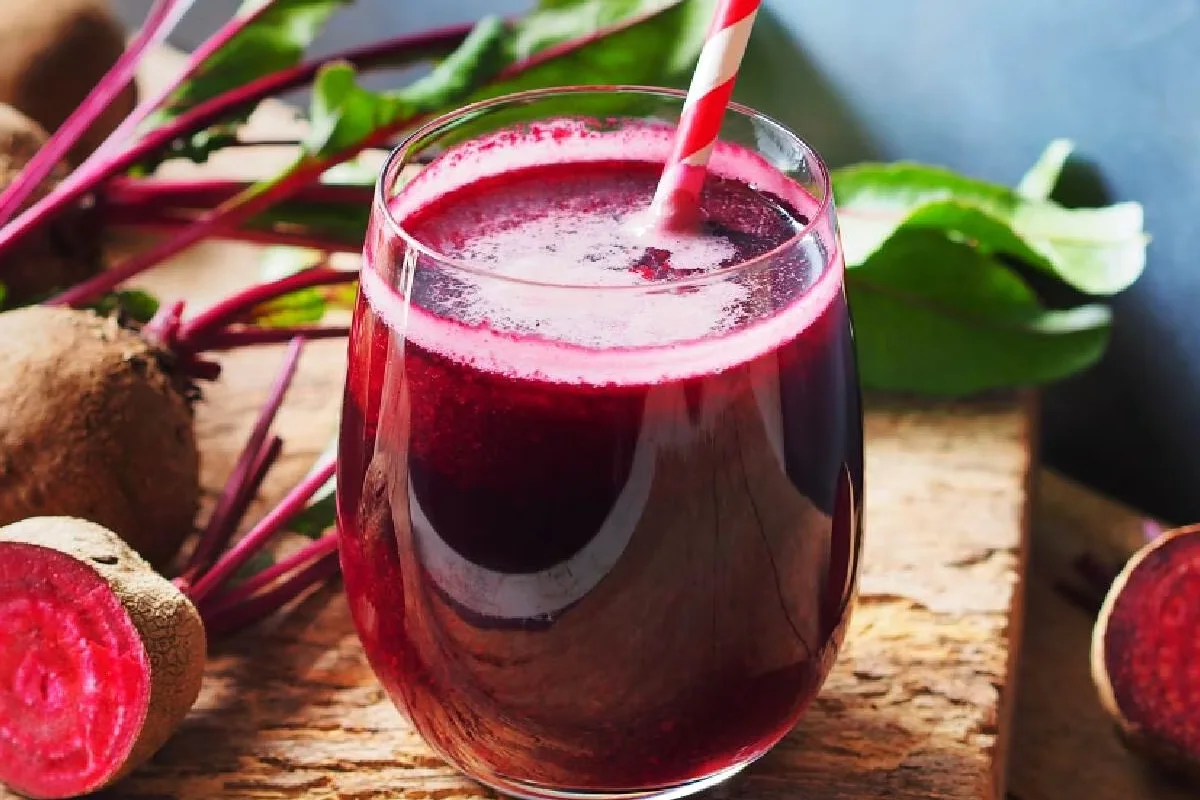Table of Contents
Beetroot Juice
Beetroot juice helps us keep the body healthy and with good physical performance, even better than any energy drink. It is a food with an essential nutritional richness, which benefits general health.
Lower high blood pressure
Consuming beetroot juice helps reduce high blood pressure levels. It is due to its naturally occurring nitrates, which convert into nitric oxide upon reaching the body, which contributes to the relaxation and dilation of blood vessels, thus improving circulation and helping to control blood pressure.
Improves physical performance
The nitric oxide in beets is a multiple that helps reduce the impact of exercise on the body, improving resistance to high intensity.
Fights inflammation
Beetroot contains Betaine, a nutrient that provides anti-inflammatory power, protects internal organs, improves vascular risk factors, and prevents chronic diseases.
Detoxifies the body
This vegetable contains pigments known as Betalin, which support the detoxification process. These nutrients and antioxidants can combat the action of free and essential radicals of vital cleansing organs such as the liver, lungs, and blood.
They are a basis of minerals and fibre.
Drinking beet juice a day provides the content of Vitamin, Fiber, and Minerals. One glass contains:
Potassium: Essential for healthy nerves, muscle function, and a healthy heart.
Manganese: which is vital for the bones, liver, kidneys, and pancreas.
Vitamin B folate: This helps reduce the risk of congenital disabilities.
It has anti-cancer properties.
Research has been complete, showing positive results in the consumption of beets for cancer prevention. According to these studies, those in charge of this benefit could be the phytonutrients that give beets their red colour. This extract reduces tumour formations when administered with drinking water.
Improves digestion
Due to its significant contribution of fibre and antioxidants, the natural juice of this vegetable is an excellent ally for digestion. It serves to combat constipation, relieve inflammation and improve the absorption of nutrients from food.
Inhibits free radicals
They neutralise the damaging effects caused by free radicals. Thanks to this, premature ageing of cells is prevented, as well as the development of severe conditions such as cancer. Scientific evidence is that beet supplementation could strengthen the body’s antioxidant compounds.
Beetroot protects the thyroid gland.
Changes in the thyroid gland are often the result of a deficiency of iodine in the diet. It recommends for patients with hypothyroidism and goitre.
Beetroot Juice helps to lose weight.
Beet juice is very low in calories and contains large amounts of fibre, vitamins, and minerals that support the diet to lose weight.
Beetroot Juice provides many nutrients.
As already mentioned, one of the main components of beets is sugars. These give it its characteristic sweet flavour but do not make it a more caloric option than many other vegetables. It also contains fibre and meagre amounts of protein and fat. It also contains minerals (potassium, iron, phosphorus, and iodine, among others) and vitamins C and group B. Precautions and advice on the consumption of beet juice.
However, despite all the benefits it entails, it should not be abused and integrated into the framework of a varied and balanced diet. This is especially important during pregnancy and lactation; during these periods, beet juice should not use as a medicine or supplement.
People with low blood pressure should make moderate use of beetroot juice. Due to the presence of potassium, this could decrease even more. Adequate control of pressure levels should maintain. People with a bent on forming calcium oxalate stones should also take precautions. In addition, consumed in large quantities, beets can worsen kidney pathologies.
Remember that the consumption of beets can lead to a condition known as beeturia. Introduce it in moderation in your diet and encourage yourself to prepare and consume it to feel the changes in your body.
Conclusion: Beetroot Juice
Beetroot is rich in water, a component that mainly integrates it, followed by sugars and dietary fibre. It also provides fats, proteins, vitamin A, vitamin B1, vitamin B2, vitamin B3, and vitamin B6. Similarly, it gives the body vitamin C, E, and K, which bind to calcium, iron, magnesium, and phosphorus. Beetroot is also a source of potassium, sodium, and zinc.

